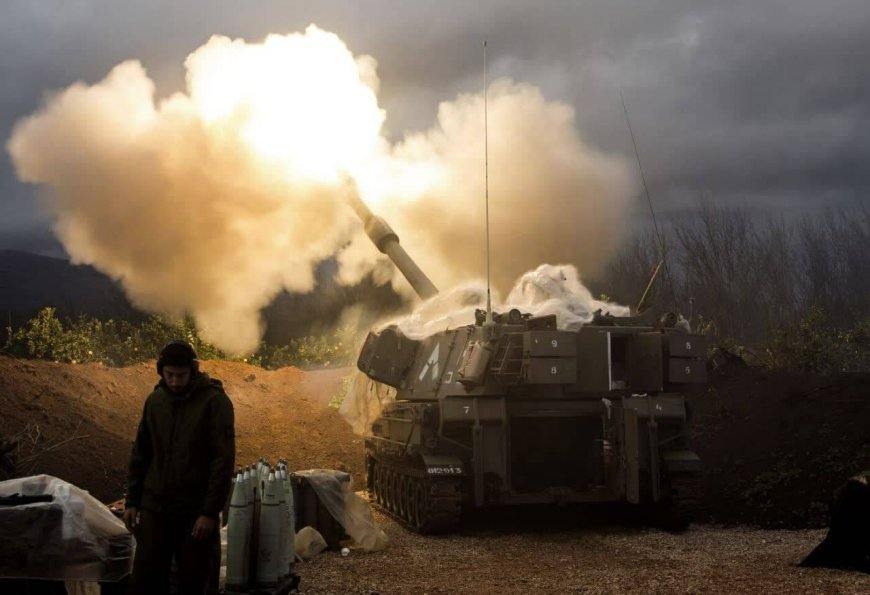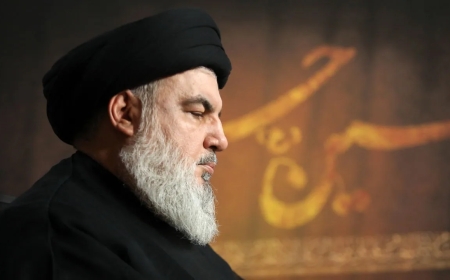Israel's Military Provocations in Southern Lebanon: The Risks of Global War?

In the tumultuous geopolitical landscape of the present-day Middle East, a flurry of reports have emerged from numerous media outlets worldwide, chronicling the warnings issued by foreign countries to their citizens, urging them to refrain from traveling to Lebanon and to expedite their departure from this embattled nation. According to the analysis of seasoned observers, these developments serve as ominous harbingers of impending war and civil unrest, a somber reality that the people of Lebanon must confront with the utmost gravity.
Concurrent with the ongoing humanitarian crisis in Gaza and the egregious war crimes perpetrated by the Israeli regime in the occupied Palestinian territories, the abnormal state of affairs permeating the Middle East region does not appear to possess the fortitude to withstand the potential outbreak of another large-scale conflict in this already volatile geography. As the international community stands vigilant, a crucial factor that has delayed the formulation of any comprehensive contingency planning in the Middle East sphere in recent days is the prevailing uncertainty surrounding the forthcoming election of Iran's new president, a development that, according to domestic news sources, is poised to be resolved in the coming days.
The rallying cry of resistance, echoing from various quarters, serves as a stern warning for the Western parties embroiled in the Lebanese conflict, urging them to be prepared to avoid any direct confrontation with the formidable Lebanese Hezbollah. This issue has rendered any analysis undertaken by Western nations regarding the future trajectory of the regime's confrontation with Hezbollah in Lebanon fraught with uncertainty, thereby necessitating a prudent approach. Consequently, Western countries must exercise restraint and await the outcome of Iran's presidential election before embarking on a thorough cost-benefit analysis of a potential war in Lebanon.
Many observers concur that the Israeli regime does not dare to wage any military operations in southern Lebanon without the tacit approval of the United States government. This development may also serve as a potential avenue for a negotiated settlement between Hamas and the Israeli regime, predicated on the premise that, in order to prevent the escalation of hostilities into southern Lebanon, the ceasefire agreement proposed by the United States would be a preferable outcome to prolonged conflict. Furthermore, the diplomatic engagements of Iran in Oman and Qatar suggest the possibility of this proposition being formally presented as part of the current negotiations.
In the midst of the evolving regional dynamics, the West Bank has emerged as a critical front, posing significant challenges for the Israeli regime. In recent days, the resistance forces in the occupied Palestinian territories have successfully disrupted the regime's army concentration on the Lebanese borders through daring ambushes and hit-and-run attacks.
This development is of paramount importance to the Israeli regime as it grapples with the need to maintain control over the occupied territories while also preparing for a potential assault on southern Lebanon. The regime's military apparatus lacks the capacity to simultaneously engage on both the internal and southern fronts of Lebanon, rendering the risk of an unplanned attack on the West Bank unacceptable.
The uncertain security situation in the occupied West Bank has, in turn, disrupted the Israeli regime's plans for a swift and decisive strike on southern Lebanon. This delicate balance of power has far-reaching implications for the regional landscape.
According to intelligence gathered from the Iran-led resistance groups, their level of preparedness across various axes across the Middle East has reached a formidable level. Reports suggest that one of the contingency plans of the Axis of Resistance’s joint operations room involves the deployment of ground forces in Lebanon should Israeli regime threats materialize. If this scenario unfolds, the entire Middle East will be plunged into a protracted and full-fledged conflict, similar to that of classical warfare.
However, it is crucial to note that the veracity of these claims remains unsubstantiated, and the current situation appears to be more a product of psychological warfare between the conflicting parties. Rumors have also surfaced about the Israeli regime's potential use of atomic weapons to annihilate Lebanon, a claim that seems to be more a testament to the regime's vulnerability than a credible threat.
The media war unleashed by the Western press in recent days appears to be a premeditated strategy to divert attention from the ongoing genocide in the Gaza Strip and the West Bank. Solid evidence for the Israeli regime's imminent attack on Lebanon remains elusive, as the upcoming US elections and the unresolved outcome of the Iranian presidential race likely factor into the calculus of the Israeli decision-makers.
In the meantime, the increased tension along the Lebanese border may be a calculated ploy by the Israeli army to test the deterrence capabilities of Hezbollah, the formidable Lebanese resistance movement. As the geopolitical landscape continues to shift, the delicate balance of power in the West Bank remains a critical factor in the broader regional dynamics.
In conclusion, it is time for the international community to stand up against Israeli aggression and support the legitimate rights of the Palestinian people and other oppressed nations in the region. The time for diplomacy and half-measures has passed; decisive action must be taken to hold Israel accountable for its crimes and prevent further bloodshed and suffering in the Middle East.













































